This post was updated Dec. 12 at 12:11 p.m.
Second grade was the first time I experienced identity denial.
I don’t remember much about my teacher, Ms. Vidito, except that she was a frail old woman who favored me as a student.
I knew this because she always picked out magazines specifically tailored to my interests. Once, she even bought me a notebook she thought I would like. She didn’t buy anyone else a notebook, so I knew she must have seen something special in me.
Growing up, I avoided discussing my Palestinian heritage, despite attending an elementary school in Saudi Arabia.
I lived in an American compound, heavily influenced by American culture. Even in the Middle East, pervasive Western biases shadowed me and led me to feel shame about my Arab identity.
I told my peers I was American – I had an American passport, so it technically wasn’t a lie, and I tried to assimilate, completely ignoring the Arab part of my identity.
I remember watching “Arab Idol” as a kid when Mohammed Assaf won. He was the first refugee from the Gaza Strip to win a prestigious competition.
I recall my mother running around the house hollering, thinking she was overdramatizing the reality TV competition.
But Assaf was the first real beacon of hope for the Palestinian people, who have lived under occupation for the last 76 years.
Being the first Palestinian man to bring about good news regarding Palestinians in several years, Assaf shone a positive light on my people and my identity. It finally made sense why my mother cried so much.
When I found out I would be visiting Palestine for the first time, I decided to tell Ms. Vidito. Her face immediately transformed from a grin to a completely neutral expression.
She told me flatly, “Nadine, Palestine doesn’t exist.”
Her statement, made in a classroom filled with the innocent chatter of children, not only dismissed my heritage but foreshadowed the complexities of acknowledging my roots in a world that often chooses to overlook them.
Here I was, a young girl holding on to her teacher’s every word, suddenly facing a denial of my very own existence.
This was in 2012, when I hardly understood it would mark the beginning of a lifelong identity crisis.
Following this encounter, I visited Palestine for the first time in December. At the age of 8, I was too young and naive to understand the dark history and tragic remnants of the land.
All I knew was that this was the place I came from, and it was under occupation.
Witnessing the emotional toll that the Israeli occupation had on Palestinians wasn’t new to me. I have vivid memories of watching my mother scream and cry out on her knees in front of the television while watching atrocities against Palestinians unfold.
At 8 years old, the difficulty of entering Palestine confused me. I would cross the border from Jordan with my family, expecting a two-hour journey that would stretch into seven or eight hours.
I remember a crowded, unwelcoming room filled with other Palestinians trying to enter. I held onto my father’s hand tightly as we navigated the loud, overwhelming space. I felt the need to cling to him for dear life, knowing I could easily get lost in the swarm of people if I let go.
Palestine was supposed to be the start of a voyage where I would explore my homeland and connect with my people.
My mother had endeavored to restore my displaced connection to Palestine throughout my life.
It was my true home.
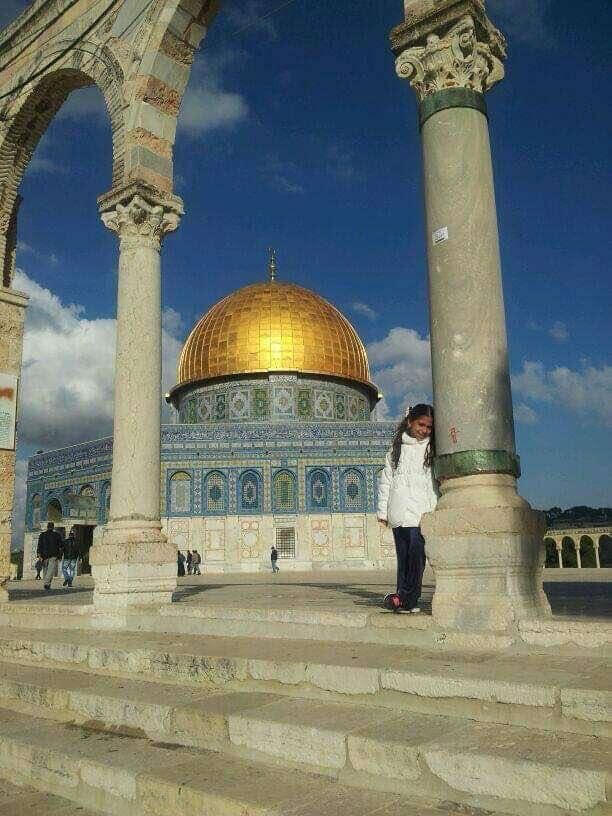
However, after navigating three checkpoints, entering the land began to feel less homey.
My father also advised me to always have my American passport ready as a safeguard, because we entered my so-called home by passing as Jordanians, not Palestinians.
This was the grim truth I was too young to grasp: My father’s American tax contributions were the sole ticket into my homeland and accorded us with higher esteem than other Palestinians trying to enter.
During the Six-Day War – known as the Naksa – Israel seized control over the West Bank, East Jerusalem, the Gaza Strip, Golan Heights and the Sinai Peninsula within a six-day period. If Palestinians outside Palestine did not return within three years, Israel revoked their hawiya, or identity card.
Consequently, Israel canceled the hawiya of any Palestinian who left Palestine for more than three years. Living in Chicago then, my family made sure to return to Palestine every two years to maintain our right to return one day.
Most Palestinians are not as privileged as I am. Many have not, or could not, set foot on the land I was about to visit. At the time, however, I felt apathetic about the situation because of my socialization in elementary school. I didn’t realize how lucky I was.
Ms. Vidito’s comment, mixed with these odd checkpoints and dirty looks I received from Israeli security, made me second-guess myself.
Why did Ms. Vidito say I didn’t exist? Why was I sitting here waving my American passport as some sort of safety precaution? And why were so many of these houses torn down?
I knew I wasn’t supposed to be here. I knew I was unwelcome – even though I had been told since I was a little girl that this was my home, and Palestine was supposed to be the place where I felt like I belonged most.
I wondered if Ms. Vidito was right.
In 2019, I moved from the American compound in Saudi Arabia to Amman, Jordan. Here was where I proudly announced my Palestinian roots, no longer a young kid willing to throw away who she was to fit in.
Jordan is home to 2.3 million displaced Palestinians. As a result, it was the first time in a while that I felt surrounded by people who would support and understand me.
Although this was the country where I found strength in my heritage, the atrocities in my homeland were not often discussed. The world had seemingly forgotten Palestine’s tragedies. Life continued, disregarding what was happening just next door.
Almost 12 years later, here I am again – right back where I started.
At this point, I don’t openly identify as a Palestinian, nor do I proudly announce my heritage. However, it’s now for a different reason.
Now, it’s because I am worried about my safety and my future.
Generally, media characterizations of Arabs prior to the Oct. 7 Hamas attack had already complicated the possibility of Arabs living peacefully in the United States.
In his work, “Orientalism,” Palestinian-American scholar Edward Said discussed how Arabs are typically depicted en masse, stripped of individuality and personal traits in news footage and photographs. The images commonly portray collective anger and suffering or feature seemingly irrational and eccentric behaviors.
Unfortunately, these characterizations have engendered significant apathy from the West concerning Palestinian lives. They perpetuate a view of Palestinians as subhuman, excluded from Western narratives of humanity and freedom – including freedom of speech.
Websites such as Canary Mission had me and fellow Arab friends in a constant state of fear and anxiety. With the website’s sole purpose being the doxxing of students and professors, it ensured that those supporting Palestine had a digital footprint that would haunt them forever.
How do you explain to your Palestinian dad, who sacrificed everything when sending you across the world for a better opportunity, that your whole life has been ruined because of a tweet or your moral stance?
I moved to Los Angeles in September. Since October, more than 38,000 Palestinians have been killed, according to the Gaza Ministry of Health. However, a recent letter published by The Lancet estimated that the total death toll could reach over 186,000 Palestinians, accounting for those buried under the rubble and indirect deaths.
The International Court of Justice ruled that Israel could be committing genocide in Gaza, in violation of the Genocide Convention. Professor Amos Goldberg, who works at the Hebrew University of Jerusalem, concluded that the situation in Gaza can be described as genocide, given the rapid and widespread nature of the violence and destruction.
This includes indiscriminate killings and executions, mass expulsions, and famine.
Israel has used starvation as a weapon of war, with deadly consequences for the children and civilians of Gaza, according to Human Rights Watch.
Aryeh Neier, one of the founders of Human Rights Watch, said to Anadolu Agency that the continuous obstruction of humanitarian aid indicates genocide is occurring in Gaza.
The targeting of intellectuals and journalists, the demolition of cultural and religious landmarks, and the pervasive dehumanization of Palestinians are encouraged by Israeli government officials including Israeli Defense Minister Yoav Gallant, who claimed that Israel was fighting “human animals.”
A former head of Israel’s National Security Council, Giora Eiland, wrote that Israel is compelled to transform Gaza into an uninhabitable area, either temporarily or permanently. Instigating a severe humanitarian crisis in Gaza is essential to achieve Israel’s objective – Eiland wrote, “Gaza will become a place where no human being can exist.”
I believe these actions collectively form a clear, deliberate attempt to obliterate Palestinian existence in Gaza.
I was grieving the loss of my people while living in an American society that sides with those committing the genocide and views me as violent and backward.
This was the first time I was met with the hard truth of oppression and racism, and I came to realize that it is the most suffocating feeling in the world.
From the beginning of freshman year onward, if anyone asked me where I was from, I decided to say Jordan.
“Jordanian girl” became my new identity – recognized by everyone, from residents in my dorm to classmates. I felt that I was living a double life. Guilt ate away at me for lying about my heritage.
Here I was, once again feeling like I was taking a million steps backward in trying to truly understand who I am and where I come from.
I was again witnessing the tragedies of my homeland through the lens of a distant telescope.
Nonetheless, looking back at the protests, the Palestine solidarity encampment and the physical and emotional violence inflicted upon students on campus this year, I can safely say that being faced with oppression and racism firsthand makes your sense of identity that much stronger.
I now proudly and openly declare my heritage to everyone, and the question, “Where are you from?” is no longer followed by a stutter. I answer confidently, because for me, saying I am Palestinian is a form of resistance to constant attempts of its erasure.
I have never felt more Palestinian in my entire life. I have never felt more comfortable in my identity than now. I have never been prouder.
The only question I ask is: At what cost?
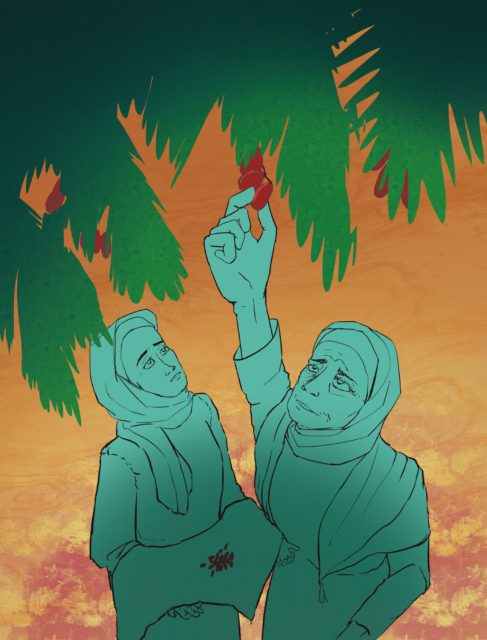

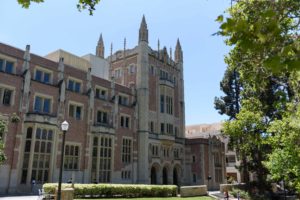
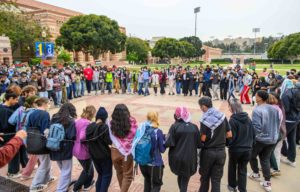
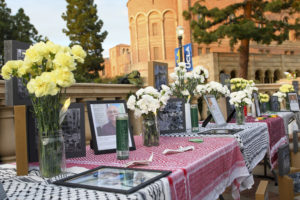
Comments are closed.